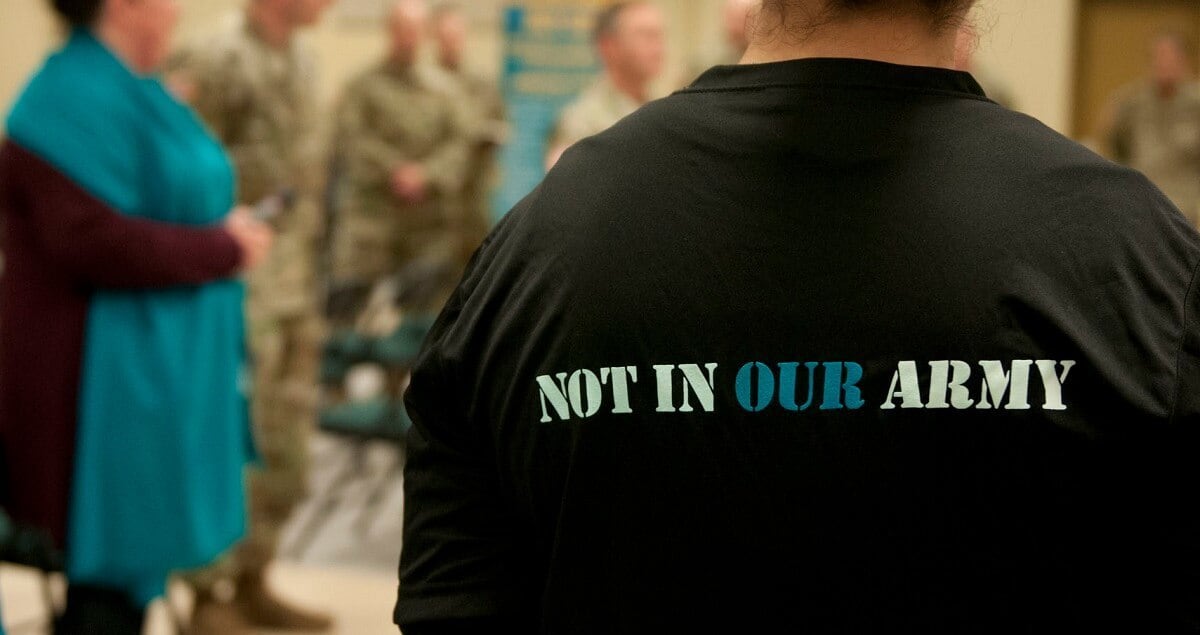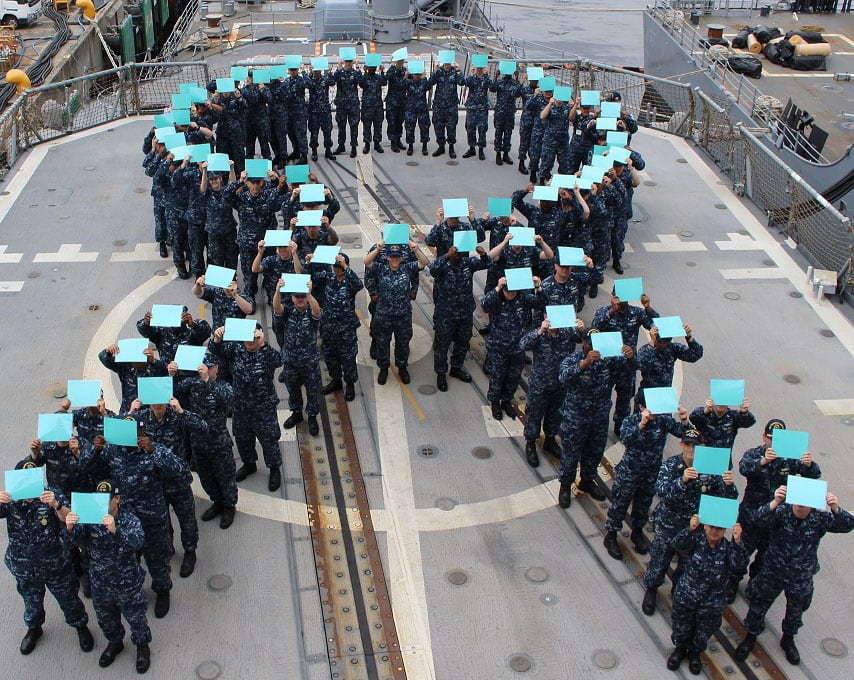The next couple of years are set to see a radical shift in the way the military handles sexual misconduct, based on dozens of recommendations from a review commission stood up earlier this year.
Removing sexual assaults from the chain of command has grabbed the most headlines, but the recommendations include many more solutions to keep accountability for command climates squarely in the hands of commanders, whether they are able to prefer charges or not.
“Everyone we talked to wants to see that change. There are people working very hard to make that happen, but they often are not equipped to do so,” a senior administration official told reporters in a phone call on Thursday. “We identified that there is a troubling gap between what senior leaders say about this problem and how junior enlisted members experience the problem.”
Defense Secretary Lloyd Austin has already said he supports removing sexual assault prosecutions from the chain of command, a radical shift from years of Pentagon rhetoric defending the right of commanders to control entirely how misconduct is handled in their formations.
He’s met with the president, an official said, who supports his decision to implement the commission’s recommendations. But a lot more needs to be done to not only prevent sexual assaults, but to restore the faith of troops in the services to handle them.
The commission recommends an implementation timeline through 2023, especially for the changes to the Uniform Code of Military Justice, that will be required to create independent sexual assault prosecutors.
“We have heard for many years, that there is no tolerance for sexual harassment and sexual assault, but we learned that in practice there is quite a lot of tolerance,” the official said.
That tolerance manifests not only in what’s seen as lack of action or slaps on the wrist for offenders, but an everyday hostile experience, which research has shown is directly linked to likelihood of sexual assaults in a unit.
“The key finding from ... junior enlisted members is that they experience daily acts of demeaning language and sexual harassment ― that it’s ubiquitous, and in many units, that it’s a part of the climate,” the official said. “And that women in particular are told this is just what they should expect. We spoke with many, many survivors, and also junior enlisted members, who witnessed their friends experiencing sexual harassment and assault, who said that on one hand the leader say there’s no tolerance but on the other hand, they’re experiencing that in daily life.”
The commission met with over 600 experts between March and June, among them advocates and researchers, as well as service members at every level. Their reports ― organized into accountability, prevention, command climate and survivor support ― include 28 recommendations and 54 sub-recommendations, the official said.
“And I want to say very clearly that we reject the notion that shifting legal decisions about prosecution from command to prosecutors diminishes the role of those commanders,” the official said. “We believe instead that it enhances their role, and places them in the lead of taking care of their people, the no. 1 job of commanders, and creating climates of no tolerance for sexual assault, sexual harassment and related crimes.”
To do that, the services will need to do a better job selecting officers for command. That includes using data to evaluate commanders so that there is a “fuller picture” of how they’re actually addressing these climate issues.
That recommendation reflects a common lament, especially of soldiers: though officer and noncommissioned officer evaluations include a box to check that the leader supports the Army’s Sexual Harassment and Assault Response and Prevention program, no evidence is required to pass that gate.
“And then we’ve recommended a series of improvements to the climate survey process, so that they can get more on-the-ground information about the climate specifically related to sexual harassment, and specific to the ability to report sexual assault,” the official said.
Professional prevention
Another glaring issue the commission found, the official said, was a dearth of experience and specialization in sexual assault prevention and response, despite a decade of efforts to build up programs.
RELATED

“No where is this problem more apparent than in the near total lack of a prevention workforce,” the officials said.
While there are victim advocates and response coordinators in every unit, those jobs are generally collateral duties to a service member’s regular job.
Having a professional who is in charge of a unit’s mandatory training, for instance, could go a long way to tightening up a SAPR program. That includes during a response, the official said, where program staff should be taking the lead.
“The key is that sexual assault response coordinators and victim advocates need to be free of any sort of command influence over what kind of services the victim receives,” the official said, as survivors report that their commanders haven’t offered the full breadth of possible support.
“So certainly the commander’s responsible for making sure that victims are protected from retaliation, bullying, all of that that can happen after [reporting], but actually what kind of services they might want to need to be developed by a professional victim advocate who can put a package together,” the official added.
The handling of the response is critical, because so much feedback has shown that survivors feel more traumatize by the response to their assaults than the assaults themselves.
“And finally, we found that victims carry a very heavy burden, and they carry this burden whether they report or not,” the official said. “Many who did report regretted doing so because of what they experienced afterwards. That includes being ostracized, bullied, and having trouble accessing quality services.”
RELATED

Getting Congress on board with the plan will be another issue.
That will require collaboration from Congress, which is moving steadily toward its own fix for the issue. Bipartisan bills in both the Senate and House of Representatives would take not only sexual assault, sexual harassment and domestic violence ― the commission’s recommendation ― but all felonies.
Austin and his top uniformed adviser, Army Gen. Mark Milley, the chairman of the Joint Chiefs of Staff, have already told lawmakers they think that taking major crimes would be too much.
That route also leaves out the misdemeanors associated with sexual assault, sexual harassment and domestic violence.
But lawmakers, including longtime advocate Sen. Kirsten Gillibrand, D-N.Y., have argued that independent prosecutions of major crimes would not only promote justice in sexual assault cases, but remedy the documented disproportionate outcomes for service members of color.
“I’m deeply concerned that if they limit it to just sexual assault, it will really harm female service members. It will further marginalize them, further undermine them, and they’ll be seen as getting special treatment,” she Gillibrand told the Associated Press in June.
Meghann Myers is the Pentagon bureau chief at Military Times. She covers operations, policy, personnel, leadership and other issues affecting service members.





